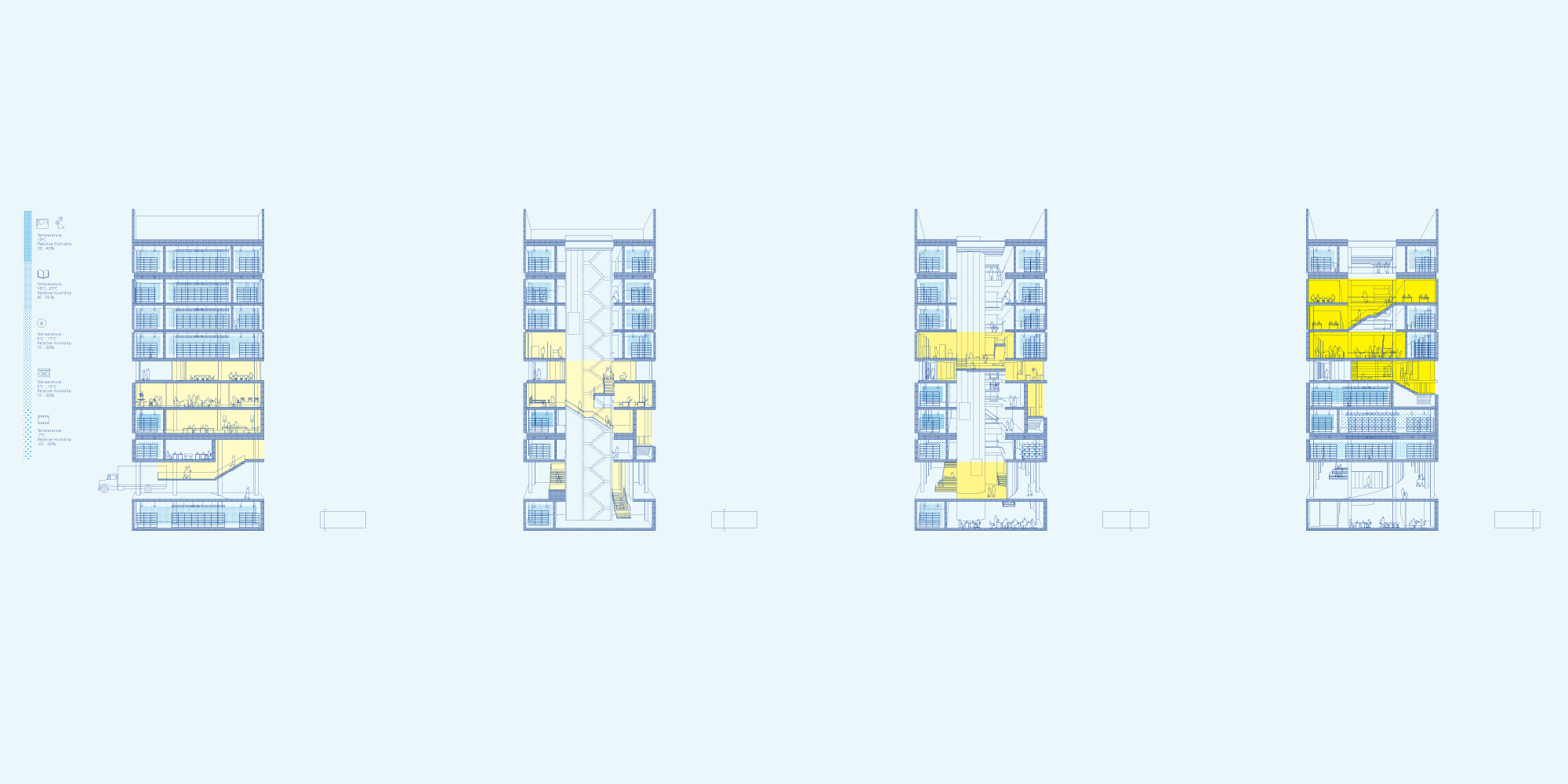the archive at work
research and design thesis
LOCATION: lille, france YEAR: 2017/8 - THE BERLAGE CENTER FOR ADVANCED STUDIES IN ARCHITECTURE AND URBAN DESIGN, TU DELFT
TEAM: MANOLIS VENIERAKIS
Thesis advisors: Ido Avissar, Salomon Frausto, Thomas Weaver
Thesis Examiners: Dick van Gameren, Michiel Riedijk
guest tutors: Diederik de Koning, Mauricio Freyre
Publications: necessarily eurometropolitan, ed. Salomon Frausto, 2018
EXHIBITIONS: THE BERLAGE thesis exhibition 2018 - FACULTY OF ARCHITECTURE, TU DELFT 02/2018
The proposed project is an Archive of Work for the Eurometropolis area of Lille-Tournai-Kortrijk. It stores physical and digital records from the region’s professional activities with an ambition to make its collected knowledge accessible. The project is altering the archive, from a storage infrastructure to a productive educational facility. This new character can transform the institution from a collection of dead objects, to an active organism, providing a space for reflection and gathering for the community while transmitting its collected knowledge.
The area balances between a post-industrial identity, characterized by coal mining and textile factories, and a new strategic placement as the ideal investment location for business and services like logistics, design and information technologies. This shift from the primary and secondary sectors of economy to services related to digital technology, is also reflected in the collected material. Higher educational institutions developed parallel to the previous industrial development in order to provide research in the same fields. Today, research centers try to link again education with the contemporary growth of digital production and commerce. The Archive of Work is the mediating partner between industry and education. While serving its administrative function, it serves as a bridge between the past and the future. By becoming an integrated part of the educational system, the archive can offer its collected knowledge for further research in the professional world against the region’s high unemployment.
The chosen site for the archive is the disused freight station Gare Saint Sauveur, centrally located in Lille. This location places the archive among the civic buildings of the city, like the town hall, the museum and the library, suggesting its urban nobility, as one of the main public institutions. Located along the horizontal boulevard connecting the new master planned area with the existing city, the Archive serves as a gate, joining the former industrial site with the urban fabric. This position sets the Archive as a monumental institution in the city center of Lille.
The building consists of nine floors, organized in two volumes with a cut in-between them. Archives operate with a clear separation between storage and human accessible areas, clearly outlining circulation paths of the archived material, the working staff, and the visitors. In the proposed building, the public areas are not separated, but placed in-between the storage rooms to evoke an interaction with them. From the closed ground floor, a public ascending route leads the visitor to the middle part of the archive, an elevated square, offering views above the city. From this space that can serve as a meeting place, one can explore the rest accessible parts within the facility, placed in various levels around the vertical voids, in conjunction with the stored formats. Precast concrete panels create a closed envelope, providing insulation for the storage rooms while thin window slits, indicate the accessible spaces within. Concrete’s austerity and roughness communicate the building’s industrial content, despite its mute and closed exterior.
Final Thesis Documentary
Publication "Necessarily Eurometropolitan", ed. Salomon Frausto, 2018























